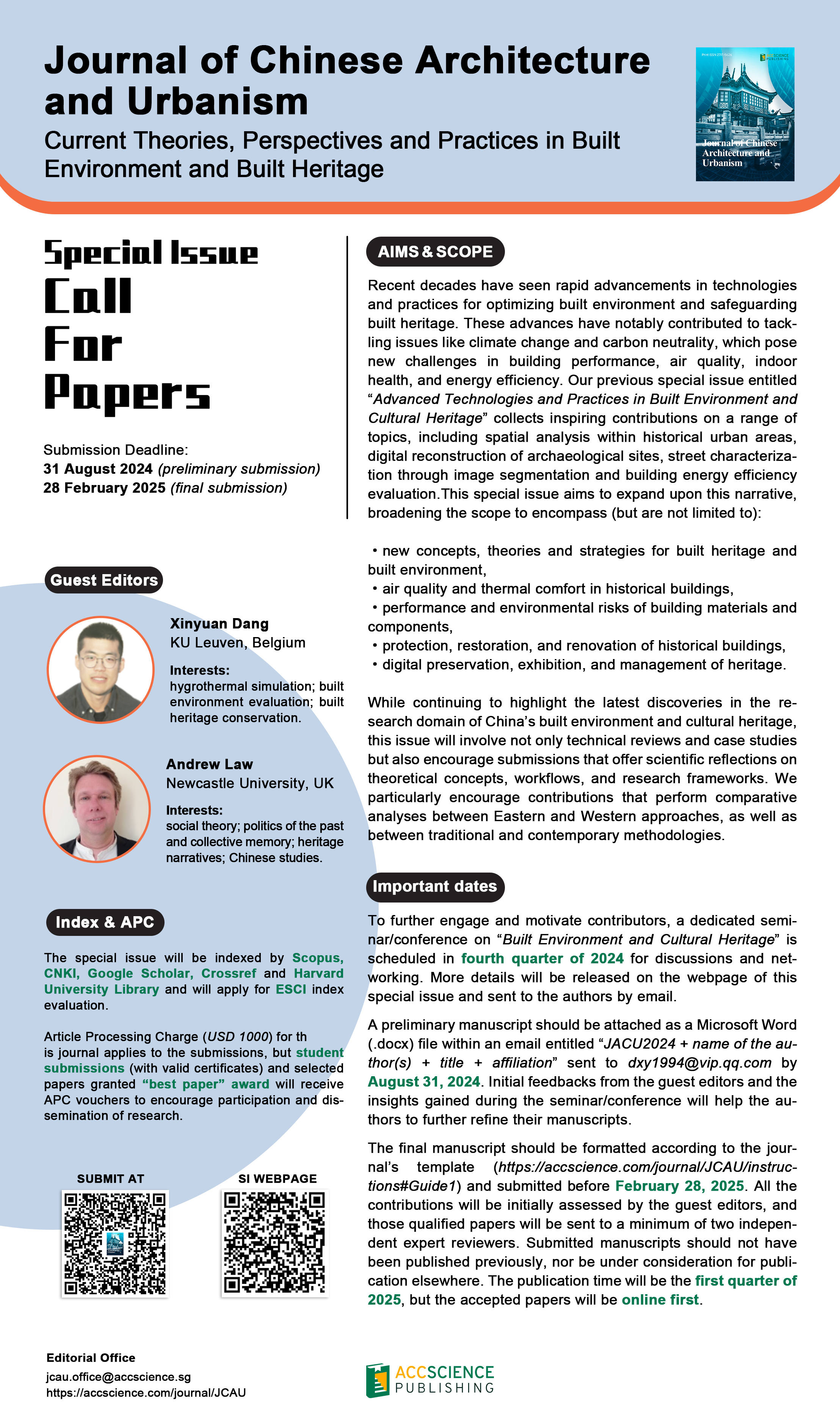
Recent decades have seen rapid advancements in technologies and practices for optimizing built environment and safeguarding built heritage. These advances have notably contributed to tackling issues like climate change and carbon neutrality, which pose new challenges in building performance, air quality, indoor health, and energy efficiency. Our previous special issue entitled “Advanced Technologies and Practices in Built Environment and Cultural Heritage” collects inspiring contributions on a range of topics, including spatial analysis within historical urban areas, digital reconstruction of archaeological sites, street characterization through image segmentation and building energy efficiency evaluation.
This upcoming special issue, “Current theories, perspectives and practices in built environment and built heritage”, aims to expand upon this narrative, broadening the scope to encompass (but are not limited to):
- new concepts, theories and strategies for built heritage and built environment,
- air quality and thermal comfort in historical buildings,
- performance and environmental risks of building materials and components,
- protection, restoration, and renovation of historical buildings,
- digital preservation, exhibition, and management of heritage.
While continuing to highlight the latest discoveries in the research domain of China’s built environment and cultural heritage, this issue will involve not only technical reviews and case studies but also encourage submissions that offer scientific reflections on theoretical concepts, workflows, and research frameworks. We particularly encourage contributions that perform comparative analyses between Eastern and Western approaches, as well as between traditional and contemporary methodologies.
Impact of environmental parameters on moisture damage in plastered heritage buildings: A case study of Anchang historical town, Shaoxing, Zhejiang, China
The Shan-Shaan Guild Hall: A historical nexus on the Great Tea Route


